第14章 "THE INVASION OF THE CRIMEA(1)
"WAS the history of the Crimean War worth writing? Not as a magnified newspaper report, - that had been already done - but as a permanent work of art from the pen of a great literary expert? Very many of us, I think, after the lapse of fifty years, feel compelled to say that it was not. The struggle represented no great principles, begot no far-reaching consequences. It was not inspired by the "holy glee" with which in Wordsworth's sonnet Liberty fights against a tyrant, but by the faltering boldness, the drifting, purposeless unresolve of statesmen who did not desire it, and by the irrational violence of a Press which did not understand it. It was not a necessary war; its avowed object would have been attained within a few weeks or months by bloodless European concert. It was not a glorious war; crippled by an incompatible alliance and governed by the Evil Genius who had initiated it for personal and sordid ends, it brought discredit on baffled generals in the field, on Crown, Cabinet, populace, at home. It was not a fruitful war; the detailed results purchased by its squandered life and treasure lapsed in swift succession during twenty sequent years, until the last sheet of the treaty which secured them was contemptuously torn up by Gortschakoff in 1870. But a right sense of historical proportion is in no time the heritage of the many, and is least of all attainable while the memory of a campaign is fresh. On Englishmen who welcomed home their army in 1855, the strife from which shattered but victorious it had returned, loomed as epoch-making and colossal, as claiming therefore permanent record from some eloquent artist of attested descriptive power. Soon the report gained ground that the destined chronicler was Kinglake, and all men hailed the selection; yet the sceptic who in looking back to-day decries the greatness of the campaign may perhaps no less hesitate to approve the fitness of its chosenannalist. His fame was due to theperfection of a single book; he ranked as a potentate in STYLE. But literary perfection, whether in prose or poetry, is a fragile quality, an AFFLATUS irregular, independent, unamenable to orders; the official tributes of a Laureate we compliment at their best with the northern farmer'sverdict on the pulpit performances of his parson:
"An' I niver knaw'd wot a mean'd but I thow't a 'ad summut to saay, And I thowt a said wot a owt to 'a said an' I comed awaay."Set to compile a biography from thirty years of "Moniteurs," the author of Waverley, like Lord Chesterfield's diamond pencil, produced one miracle of dulness; it might well be feared that Kinglake's volatile pen, when linked with forceful feeling and bound to rigid task-work, might lose the charm of casual epigram, easy luxuriance, playful egotism, vagrant allusion, which established "Eothen" as a classic. On the other hand, he had been for twenty years conversant with Eastern history, geography, politics; was, more than most professional soldiers, an adept in military science; had sate in the centre of the campaign as its general's guest and comrade; was intrusted, above all, by Lady Raglan with the entire collection of her husband's papers: her wish, implied though not expressed, that they should be utilized for the vindication of the great field-marshal's fame, he accepted as a sacred charge; her confidence not only governed his decision to become the historian of the war, but imparted a personal character to the narrative.
In order, therefore, rightly to appreciate "The Invasion of the Crimea," we must look upon it as a great prose epic; its argument, machinery, actors, episodes, subordinate to a predominant ever present hero. In its fine preamble Lord Raglan sits enthroned high above generals, armies, spectators, conflicts; on the quality of his mind the fate of two great hosts and the fame of two great nations hang. He checks St. Arnaud's wild ambition; overrules the waverings of the Allies; against his own judgment, but in dutiful obedience to home instruction carries out the descent upon the Old Fort coast. The successful achievement of the perilous flank march is ascribed to the undivided command which, during forty-eight hours, accident had conferred upon him. From his presence incouncil French and English come away convinced andstrengthened; his calm in action imparts itself to anxious generals and panic- stricken aides-de-camp. Through Alma fight, from the high knoll to which happy audacity had carried him he rides the whirlwind and directs the storm. In the terrible crisis which sees the Russians breaking over the crest of Inkerman, in the ill-fated attack on the Great Redan where Lacy Yea is killed, his apparent freedom from anxiety infects all around him and achieves redemption from disaster. We see him in his moments of vexation and discomfiture; dissembling pain and anger under the stress of the French alliance, galled by Cathcart's disobedience, by the loss of the Light Brigade, by Lord Panmure's insulting, querulous, unfounded blame. We read his last despatch, framed with wonted grace and clearness; then - on the same day - we see the outworn frame break down, and follow mournfully two days later the afflicting details of his death. As the generals and admirals of the allied forces stand round the dead hero's form, as the palled bier, draped in the flag of England, is carried from headquarters to the port, as the "Caradoc," steaming away with her honoured freight, flies out her "Farewell" signal, the narrative abruptly ends. The months of the siege which still remained might be left to other hands or lapse untold. Troy had still to be taken when Hector died; but with his funeral dirge the Iliad closed, the blind bard's task was over: